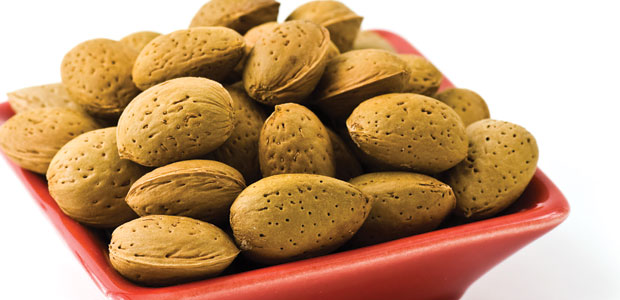Advertisement
Dual Cholesterol Combatants
Diet & supplements

More than 400,000 Canadians live with heart disease. Several risk factors contribute to heart disease–age, gender, heredity, diet, and high blood cholesterol. Approximately 40 percent of Canadians have high blood cholesterol levels, but it is one of the risk factors that we can control.
We can lower our cholesterol levels by modifying our diet. Researchers at the University of Toronto and St. Michael’s Hospital developed the portfolio diet. For 12 months participants followed a diet high in plant sterols, soy protein, viscous fibres, and almonds. When eaten in combination, these foods reduce cholesterol levels more effectively.
After a year on the diet, 30 percent of participants reduced their LDL (bad) cholesterol levels by more than 20 percent. These results are similar to the results obtained by taking a statin drug to lower cholesterol.
Diet redesign
To adopt the portfolio diet, include plant sterols (also known as phytosterols) in your diet. Plant sterols are phytochemicals that are naturally found in plants. Increase your consumption of sea buckthorn oil, corn oil, soybean oil, and plant sterol-enriched margarines.
Good sources of soy protein are tofu, soy milk, and other soy-based meat substitutes. Increase the amount of viscous fibre you consume by adding more oats, barley, and psyllium to your diet.
Supplement solution
Plant sterols
This dietary component can also be taken in supplement form, but note that it must be taken with meals. Plant sterols block the absorption of cholesterol by the intestine.
A 2006 study in The American Journal of Cardiology found that patients on statin drugs who supplemented with plant stanol tablets experienced a larger decrease in LDL cholesterol levels than those on statin drugs alone.
Omega-3s
Research has shown that omega-3 fatty acids also play an important role when it comes to lowering cholesterol. To maintain overall heart health, take 400 to 500 mg of omega-3 fatty acids a day in either pill or fish oil form. This is equivalent to eating two servings of oily fish a week.
Guggulipids
Derived from the resin of the commiphora mukul tree, guggulipids are used in Ayurvedic medicine. When taken over a four to 12 week period, they were shown to reduce LDL cholesterol by 27 percent and triglycerides by 30 percent; however, other studies have refuted that finding. Be aware that guggulipids may interfere with a wide variety of medications.
Before adding any of these supplements to your diet, consult your health care practitioner for advice on creating a natural cholesterol-lowering plan.




